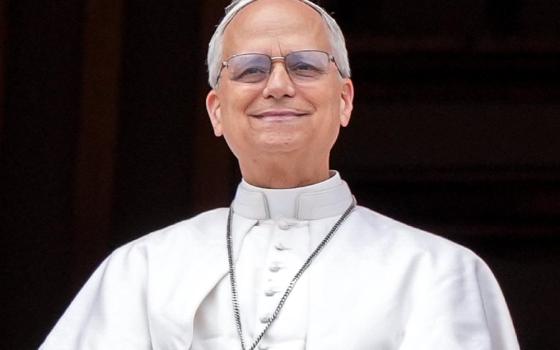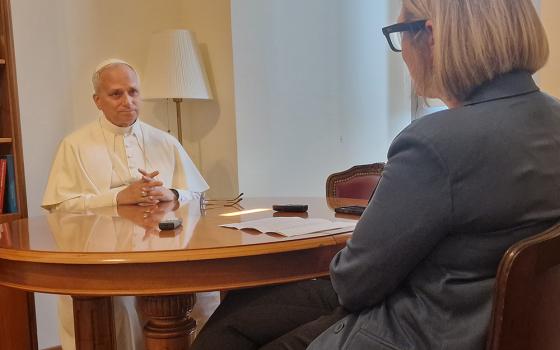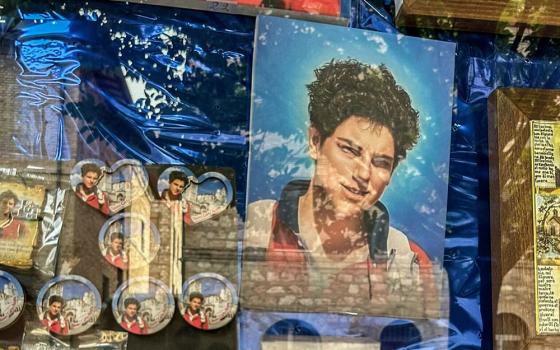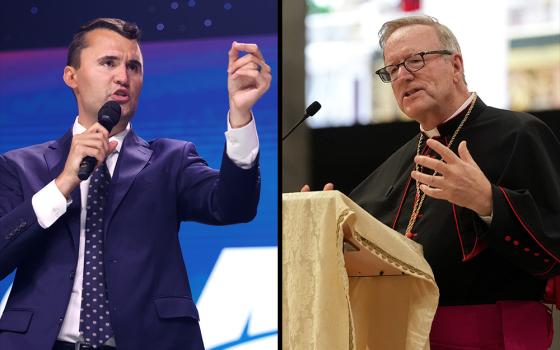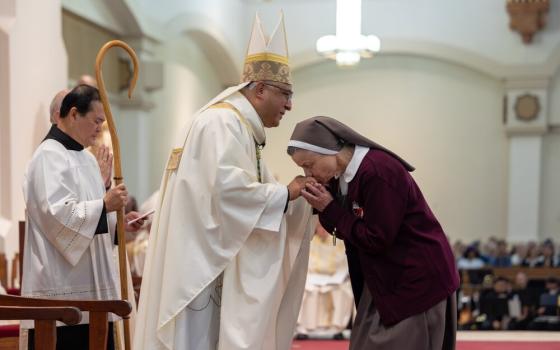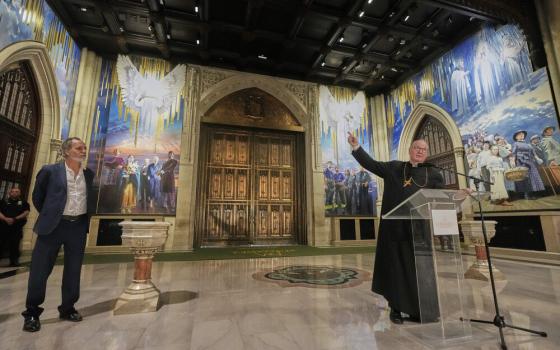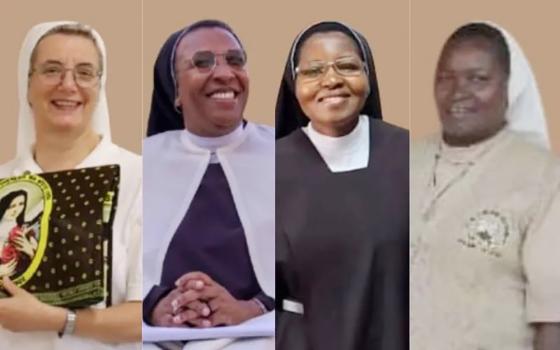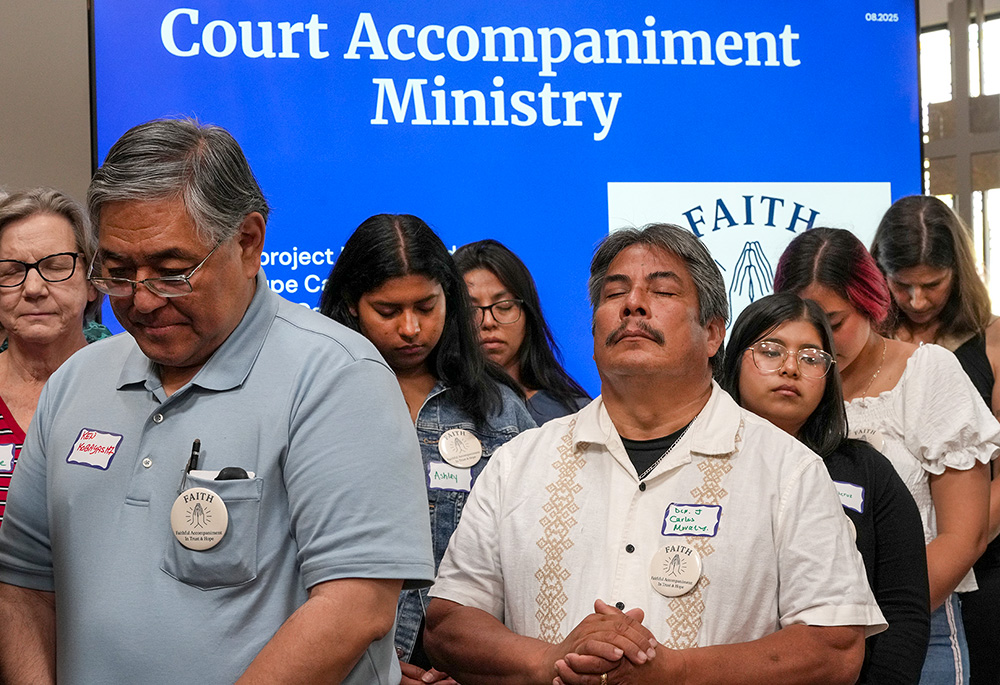
Court accompaniment volunteers gather for a blessing at the Pastoral Center of the San Diego Diocese, at the launch of "FAITH" — "Faithful Accompaniment In Trust & Hope" — a program to make sure refugees and asylum seekers are not alone at immigration hearings. (NCR photo/Chris Stone)
An auxiliary bishop sprinkled holy water on 70 volunteers Monday, Aug. 4, as Bishop Michael Pham launched a new ministry in the San Diego Diocese, which has nearly 1.4 million Catholics.
The volunteers will wear buttons proclaiming "FAITH" — "Faithful Accompaniment In Trust & Hope" — a program to make sure refugees and asylum seekers are not alone at immigration hearings.
Spurred by an event on World Refugee Day, June 20 — when Pham and other clergy saw masked ICE agents "scatter" at their immigration court presence — the diocesan ministry unveiled a calendar for sign-ups and held an orientation.
"This is history in the making ... something beautiful and mighty," Gloria Morales-Palos told a chapel audience at the diocese's Pastoral Center. She's co-chair of the San Diego Organizing Project board, the activist group whose executive director — Dinora Reyna — first suggested clergy show up at immigration court on World Refugee Day.
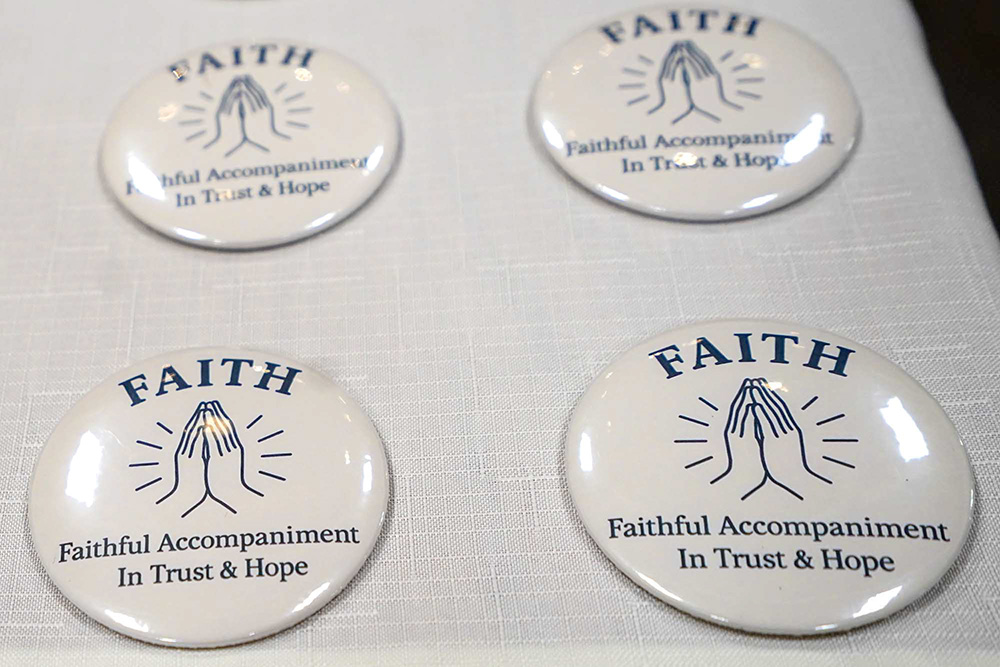
Accompaniment volunteers will wear buttons to identify themselves as part of the ministry. (NCR photo/Chris Stone)
Pham, the first Vietnamese American named to lead a diocese in the United States, stood among volunteers and news media and said the ministry was hailed by the vast majority of those who contacted him.
"We want to make a difference because each of us have value and dignity," he said. "In communion with each other, we are stronger."
He ended his greeting to volunteers on "the mission that God has entrusted to us" with: "Is that good? Is that helpful?"
Asked his message to Catholics who in November backed Donald Trump, with his vow of mass deportations, Pham said he didn't know their mindset but that now, seeing the human persons involved, "they might make change."
He said he received only "a couple" of notes opposing the ministry, "but 90%" were supportive of their "walk with the people."
And what if ICE agents don't pull back again at the courthouse?
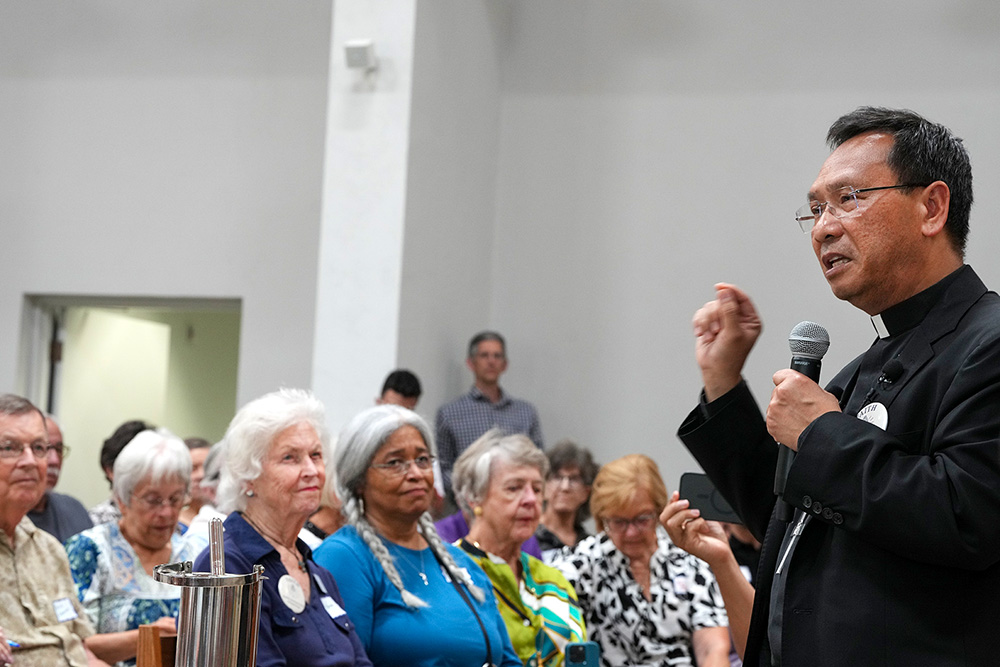
San Diego Bishop Michael Pham speaks about the importance of the new court accompaniment ministry for immigrants. (NCR photo/Chris Stone)
"Obviously, living here, we gotta follow the law," Pham said. "We do as much as we can. The next time, we ask the U.S. bishops' conference to be more vocal in pressing this issue. ... Maybe in the mass presence [of clergy] throughout the country, that can be helpful."
Pham said the widely covered June 20 event at the San Diego federal building moved clergy in nearby Orange County to accompany immigrants at their local court.
"They, too, walked with the people," he told reporters. "They wanted to see what we had done and how beneficial that was. So other dioceses are beginning to participate."
Among the mostly older volunteers for San Diego's new ministry were Bonnie and David Freeman of San Diego, both retired professors who worked with teachers of English as a second language at schools in Texas and Central California.
Both 81, the Freemans called the new ministry "extremely important."
Advertisement
"All our lives," Bonnie said, "we've been working with immigrants and we know them as people and we care about them and we know they care about this country and they care about the work they do and they're proud, wonderful people."
David added: "Once you get to know these folks, you hate to see the way they're now being treated — it's just criminal to us."
The Freemans, who have taken part in their parish — the Immaculata Church — in its racial justice program, then made their way downstairs to a conference room and orientation.
Leading the session was Yolanda Crystal Felix, managing attorney at the American Bar Association Immigration Justice Project.
Felix did a PowerPoint talk and answered questions basic and sophisticated, from "Will we be standing all the time?" (not if you're in court) to whether anyone has legally challenged the fact that immigration judges and prosecuting lawyers work under the same Justice Department.
One volunteer asked if an underground railroad existed for immigrants being deported to be sent to their home country instead of some unfamiliar third nation. (Felix wasn't aware of any such effort).
Much of orientation was describing the makeup of the immigration system and which agencies did what under what laws. Felix noted such things as a new $100 fee to apply for asylum (filling out Form I-589 — something immigrants must do within a year of entering the United States).
No families have been arrested in San Diego, Felix said, but fathers have been taken from their kin.
But Felix conceded that the Department of Homeland Security has been dodging traditional legal norms and seeking dismissal of cases for the sake of "expedited removal" — and no day in court.
"Congress allowed the expedited removal process to exist," she told a rapt audience. "It's a system created that is ... not due process."

